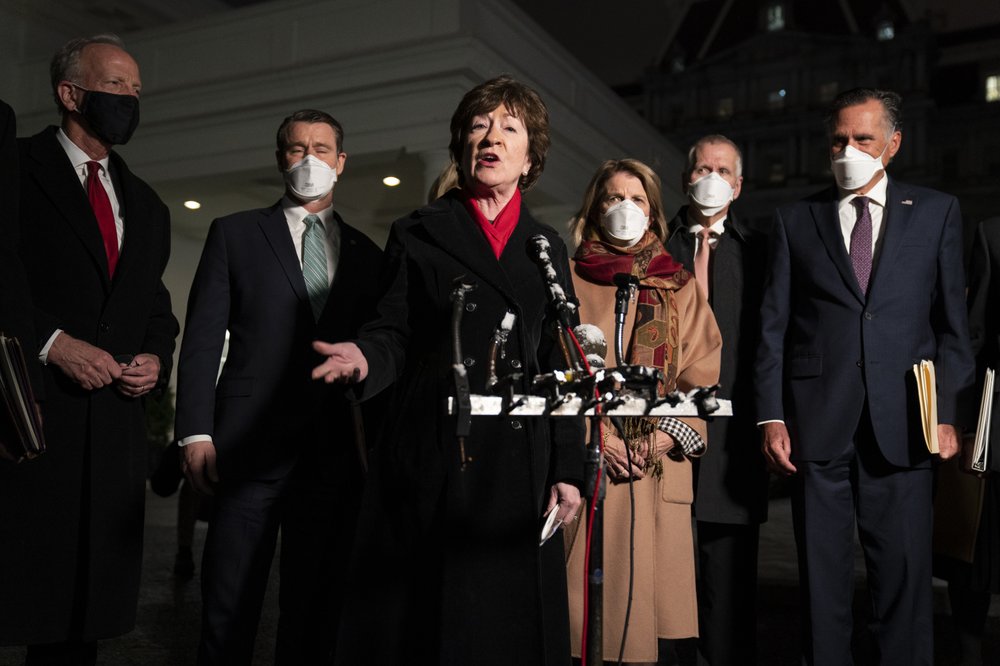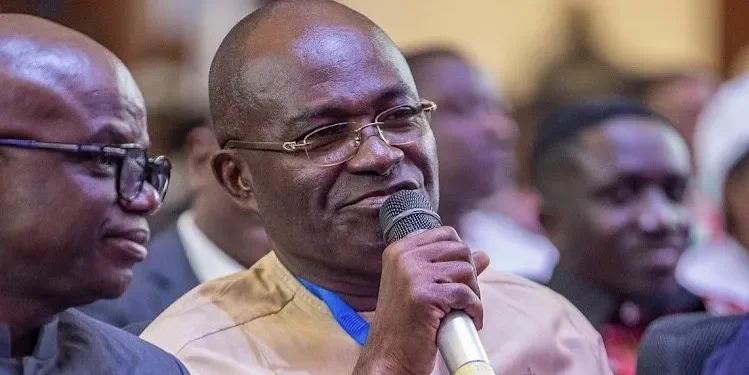US President Joe Biden has told Republican senators during a two-hour meeting that he’s unwilling to settle on an insufficient coronavirus aid package, after they pitched their scaled-down $618 billion counterproposal, a fraction of the $1.9 trillion relief bill the President is seeking.
The meeting is President Biden’s first with lawmakers at the White House and no compromises were reached by both sides after lengthy discussions.
White House Press Secretary Jen Psaki said that while there were areas of agreement, “the President also reiterated his view that Congress must respond boldly and urgently, and noted many areas which the Republican senators’ proposal does not address.
“He will not slow down work on this urgent crisis response, and will not settle for a package that fails to meet the moment.”
As a result, Democrats in Congress have pushed ahead with groundwork for approving his COVID relief plan with or without Republican votes. Despite the Republican group’s appeal for bipartisanship, President Biden made it clear that in a bid to unite the country, he won’t delay aid in hopes of winning Republican support.
The two sides are far apart, with the Republican group’s counterproposal focusing primarily on the health care crisis and a smaller $1,000 direct aid to Americans. The direct payments would go to fewer households than the $1,400 President Biden has proposed, and offers only a fraction of what the President wants to reopen schools.
The Republican senators also proposed giving nothing to states, money that Democrats argue is just as important, with $350 billion in President Biden’s plan to keep police, fire and other workers on the job.
The President is leading Democrats toward a more extensive rescue package, three times the size, to shore up households, local governments and a partly shuttered economy.
Republican Senator Susan Collins of Maine called the meeting a “frank and very useful” conversation, noting that the president also filled in some details on his proposal.
“All of us are concerned about struggling families, teetering small businesses and an overwhelmed health care system,” said Sen. Collins, flanked by other senators outside the White House.
Asked if Biden had shown a willingness to reduce his $1.9 trillion top line, Republican Sen. Bill Cassidy of Louisiana, said, “He didn’t say that, nor did we say we’re willing to come up” from the GOP plan. He said it’s “too early” to say if a deal can be reached.

Democrats have pushed ahead at the Capitol, unwilling to take too much time in courting Republican support that might not materialize or deliver too meagre a package that they believe doesn’t address the scope of the nation’s health crisis and economic problems.
House and Senate Democrats released a separate budget resolution a step toward approving Biden’s package with a reconciliation process that wouldn’t depend on Republican support for passage.
In a statement, Senate Majority Leader Chuck Schumer and House Speaker Nancy Pelosi intimated that, “The cost of inaction is high and growing, and the time for decisive action is now.”
Senator Schumer also warned that history is filled with “the costs of small thinking.”






















